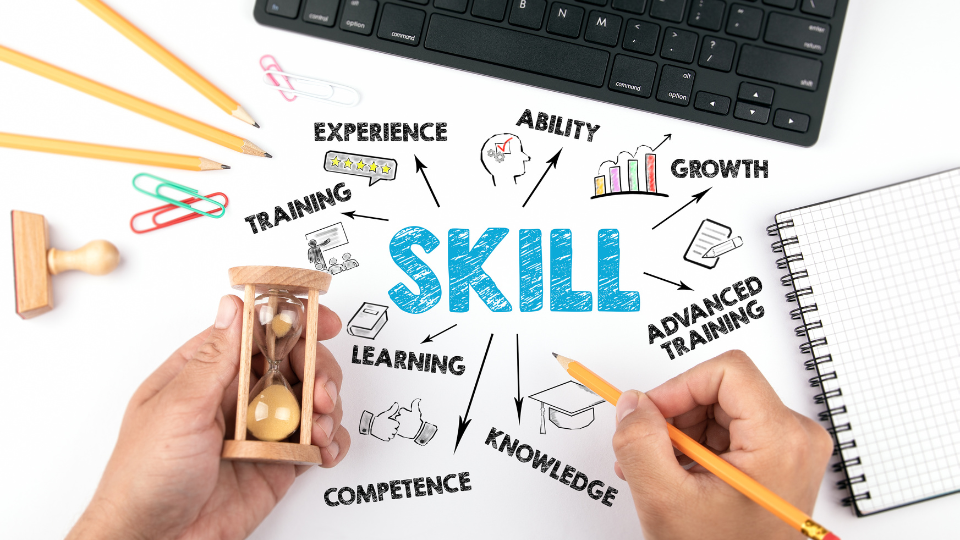The Importance of Authenticity in Self-Leadership
In the realm of self-leadership, where individuals navigate their own paths towards personal and professional fulfillment, authenticity stands as a cornerstone principle. Authenticity isn't just a buzzword; it's a powerful catalyst for genuine growth and success. In this blog, we delve into the profound significance of authenticity in self-leadership, exploring how embracing one's true self is not only liberating but also essential for effective leadership. We'll uncover why authenticity fosters trust, cultivates resilience, and fuels innovation, ultimately leading to more meaningful connections and impactful leadership. Whether you're a seasoned leader or on the journey of self-discovery, understanding the importance of authenticity in self-leadership can revolutionize your approach to both personal development and leading others. Join us as we embark on a transformative exploration of authenticity's pivotal role in the realm of self-leadership.
Understanding Authenticity
Authenticity is the alignment between your actions, values, beliefs, and true self. It's about being genuine, transparent, and true to who you are, regardless of external pressures or expectations. Authentic self-leadership begins with self-awareness—the ability to recognize and embrace your strengths, weaknesses, passions, and values.
Embracing Your True Self: A Guide to Authentic Self-Leadership
Authentic self-leadership is not just about leading others; it's about leading yourself from a place of truth and integrity. In a world that often demands conformity and compromise, embracing your true self can be a revolutionary act. This guide is designed to help you unlock the power of authenticity in your self-leadership journey, empowering you to lead with confidence, purpose, and authenticity.
Embracing Vulnerability
Vulnerability is often seen as a weakness, but in reality, it's a strength. Authentic self-leadership requires the courage to be vulnerable—to show up as your authentic self, flaws and all. By embracing vulnerability, you create space for genuine connections, empathy, and trust to flourish, both within yourself and with others.
Living Your Values
Values serve as your compass in life, guiding your decisions, actions, and priorities. Authentic self-leadership involves living in alignment with your values—making choices that reflect what truly matters to you. When your actions align with your values, you experience a deeper sense of fulfillment, purpose, and authenticity in your leadership journey.
Building Authentic Relationships
Authentic self-leadership thrives on genuine connections and relationships. By being authentic in your interactions with others, you foster trust, respect, and mutual understanding. Authentic leaders prioritize listening, empathy, and vulnerability, creating an environment where everyone feels valued, heard, and supported.
Overcoming Imposter Syndrome
Imposter syndrome is a common challenge for many leaders, causing feelings of self-doubt and inadequacy. Authentic self-leadership involves acknowledging your strengths, weaknesses, and insecurities, and embracing them as part of your journey. By recognizing and challenging imposter syndrome, you can cultivate greater confidence, resilience, and authenticity in your leadership.
Practicing Authentic Communication
Communication is at the heart of effective leadership, and authenticity is key to fostering meaningful connections and collaboration. Authentic self-leadership involves communicating openly, honestly, and transparently—with yourself and others. By embracing authenticity in your communication, you build trust, strengthen relationships, and inspire others to do the same.
Cultivating Authenticity: Practices for Sustainable Self-Leadership
Cultivating authenticity is essential for sustainable self-leadership. Authenticity fosters genuine connections, builds trust, and enhances personal effectiveness. Here are key practices to help you cultivate authenticity in your self-leadership journey.
Self-Reflection: Take time to reflect on your values, strengths, and areas for growth. Understanding yourself better is the foundation of authentic leadership.
Embrace Vulnerability: Be willing to show your authentic self, including your fears and imperfections. Vulnerability fosters deeper connections and strengthens relationships.
Live Your Values: Align your actions with your values. Living authentically means making choices that reflect what truly matters to you.
Practice Mindfulness: Cultivate awareness of your thoughts, emotions, and behaviors. Mindfulness helps you stay present and authentic in your interactions.
Cultivating authenticity is an ongoing practice that requires self-awareness, courage, and commitment.
Authentic Communication: The Key to Effective Self-Leadership
Communication lies at the heart of effective leadership, both in leading others and leading oneself. However, authentic communication goes beyond mere transmission of information—it's about connecting genuinely with oneself and others. In this guide, we'll explore how authentic communication serves as the cornerstone of effective self-leadership, empowering individuals to understand themselves better, navigate challenges, and foster meaningful relationships.
Self-Reflection and Authenticity
Authentic communication starts with self-awareness and self-reflection. By taking the time to understand your own thoughts, emotions, and motivations, you can communicate more authentically with others. Self-reflection allows you to identify your values, beliefs, and priorities, guiding your communication in alignment with your true self.
Honesty and Transparency
Authentic communication requires honesty and transparency in expressing your thoughts, feelings, and intentions. Being truthful with yourself and others builds trust and credibility, fostering stronger relationships and more effective collaboration. Authentic self-leadership involves owning your mistakes, admitting your limitations, and sharing your successes with humility.
Empathy and Active Listening
Empathy is the ability to understand and share the feelings of others, and it is essential for authentic communication. Authentic self-leadership involves listening actively and empathetic to others, seeking to understand their perspectives and experiences without judgment. By practicing empathy in communication, you demonstrate respect, compassion, and genuine care for others.
Vulnerability and Authenticity
Vulnerability is often viewed as a weakness, but in reality, it is a strength. Authentic self-leadership involves embracing vulnerability—being open and honest about your fears, insecurities, and struggles. By sharing your vulnerabilities with others, you create space for genuine connections and deeper relationships based on trust and authenticity.
Building Trust and Rapport
Authentic communication is the foundation of trust and rapport in relationships. By communicating authentically with others, you demonstrate integrity, reliability, and sincerity, which fosters trust and respect. Authentic self-leadership involves building strong, authentic relationships based on mutual understanding, transparency, and empathy.
Conclusion
At The GRIIT Project, we firmly believe in the transformative power of authenticity in self-leadership. Authenticity not only fosters genuine connections but also cultivates trust and respect within teams, driving productivity and innovation. By embracing our true selves, we empower others to do the same, fostering a culture of openness and collaboration. As we continue to prioritize authenticity in our leadership approach, we pave the way for meaningful growth, both personally and professionally, within our organization and beyond.



